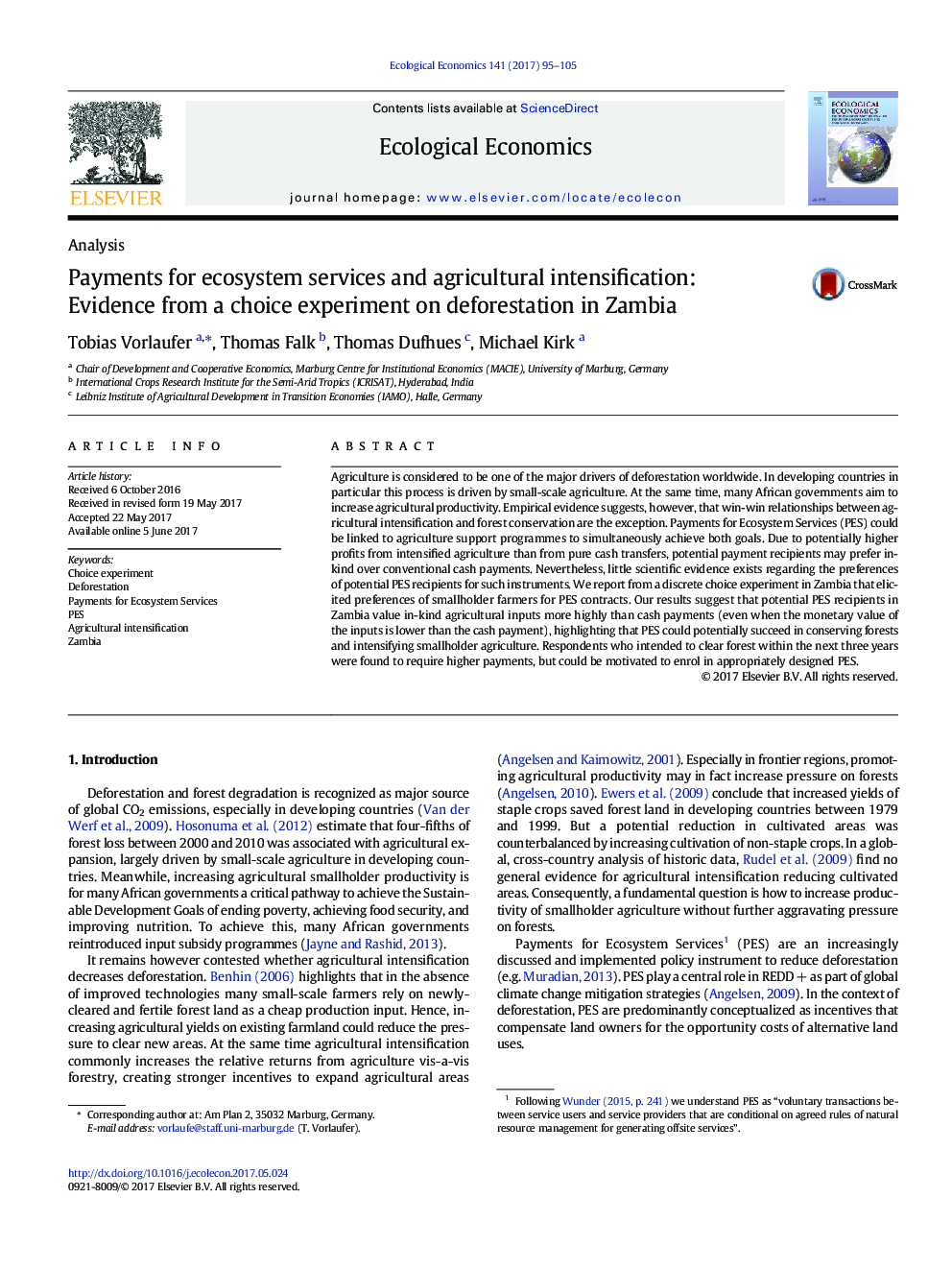| کد مقاله | کد نشریه | سال انتشار | مقاله انگلیسی | نسخه تمام متن |
|---|---|---|---|---|
| 5048653 | 1476338 | 2017 | 11 صفحه PDF | دانلود رایگان |
- We conducted a choice experiment on PES among Zambian smallholder farmers.
- Preferences for cash and in-kind (agricultural inputs) payments were elicited.
- Respondents value in-kind agricultural inputs more highly than cash payments.
- Such PES could conserve forests while intensifying smallholder agriculture.
- Respondents with clearing intention require higher payments for enrolment.
Agriculture is considered to be one of the major drivers of deforestation worldwide. In developing countries in particular this process is driven by small-scale agriculture. At the same time, many African governments aim to increase agricultural productivity. Empirical evidence suggests, however, that win-win relationships between agricultural intensification and forest conservation are the exception. Payments for Ecosystem Services (PES) could be linked to agriculture support programmes to simultaneously achieve both goals. Due to potentially higher profits from intensified agriculture than from pure cash transfers, potential payment recipients may prefer in-kind over conventional cash payments. Nevertheless, little scientific evidence exists regarding the preferences of potential PES recipients for such instruments. We report from a discrete choice experiment in Zambia that elicited preferences of smallholder farmers for PES contracts. Our results suggest that potential PES recipients in Zambia value in-kind agricultural inputs more highly than cash payments (even when the monetary value of the inputs is lower than the cash payment), highlighting that PES could potentially succeed in conserving forests and intensifying smallholder agriculture. Respondents who intended to clear forest within the next three years were found to require higher payments, but could be motivated to enrol in appropriately designed PES.
Journal: Ecological Economics - Volume 141, November 2017, Pages 95-105
